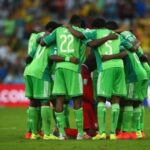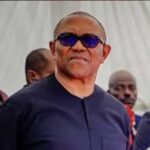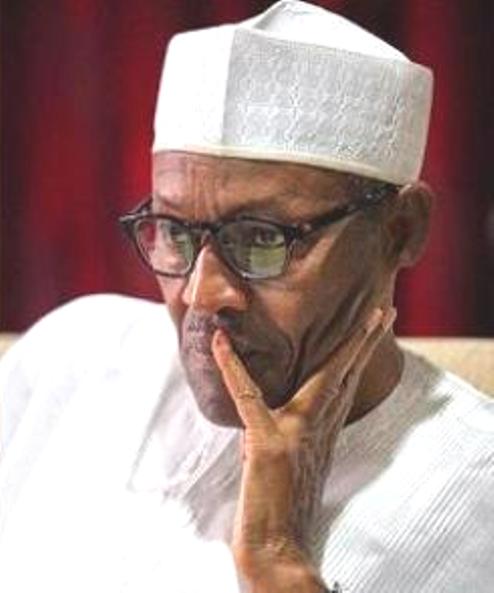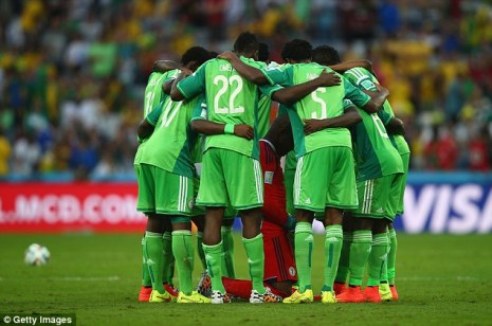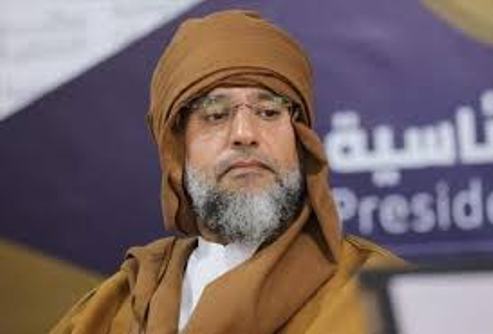LAGOS APRIL 25TH (NEWSRANGERS)-Given his campaign promises in 2014 and 2018, the President, Major General Muhammadu Buhari (retd.), has reneged on several fronts in the eight years he served, leaving Nigerians with many unfulfilled expectations, STEPHEN ANGBULU writes
On Friday, May 29, 2015, thousands of Nigerians gathered at Eagles Square, Abuja, as millions more followed on television to watch their new President, Major General Muhammadu (retd.), take the oath of office.
Supporters chanted, “Mai gaskiya! (meaning Man of truth) Sai Baba! Sai Buhari!” The sheer fanfare and jubilation on the streets nationwide showed how much confidence and trust Nigerians had in the 72-year-old, tall, slender former Head of State from Daura, Northwest Nigeria.
Having contested the Presidency and failed thrice, Buhari was now inheriting a fragile economy, a heavily polarized state and would fight to reclaim swaths of ungoverned territory from Boko Haram’s grip. The terrorists did not seize lands alone. Many of the 276 schoolgirls abducted from their school in Chibok a few years earlier were still held captive. Buhari promised to set them free.
On inauguration day, he stood as tall as his reputation; a no-nonsense leader poised to uproot deep-seated corruption, crush the Boko Haram insurgency, restore security and revamp Africa’s largest economy.
These expectations were neither arbitrary nor thrust upon him. They were only a result of his promises; promises of change, hope and opportunity for citizens whom, he said, have endured 16 years of bad governance under the Peoples Democratic Party.
After emerging as the presidential candidate of the All Progressives Congress that Thursday night of December 11, 2014, Buhari pledged to “govern Nigeria honestly under the constitution, strive to secure the country and efficiently manage the economy, attack poverty through shared economic growth, attack corruption through the impartial application of the law, tolerate no religious, regional, economic or gender bias in government, return Nigeria into a position of international respect through patriotic foreign policy and to choose the best Nigerians for the right jobs.”
It also cited the Lagos-Ibadan Expressway, Second Niger Bridge, and Abuja-Kaduna-Zaria-Kano Expressway (first phase for completion in 2023) as part of its developmental efforts to buoy the economy.
However, these efforts have sailed on heavy borrowings. As Nigeria’s debt profile coasts from N12.12tn in June 2015 to N77tn by June 2023, every Nigerian would owe over N384,000 by the end of the Buhari regime.
Rising inflation botched Buhari’s promise of lifting millions of Nigerians out of poverty.
According to the Consumer Price Index report by the NBS in March 2023, Nigeria’s inflation rate accelerated to a new 17-year high of 22.04 per cent. With increasing prices worsening the welfare of Nigerian households, the World Bank revealed that the country has one of the highest inflation rates globally and the seventh highest in sub-Saharan Africa in 2022.
In its mid-April report, the National Poverty Reduction with Growth Strategy steering committee revealed that about two million vulnerable Nigerians were impacted by its various projects. This is two per cent of the 100 million Nigerians the President hoped to lift out of poverty.
Nigeria’s available power generation capacity plummeted by 981.8 megawatts between 2015 and August 2022. A Power Generation Trend revealed that while available power generation capacity was 6,616.28MW in 2015, it dropped to 5,634.47MW in August 2022. This was despite the over N1.51tn the Federal Government intervention in the sector since 2015.
Consequently, the national grid collapsed at least 98 times under Buhari, plunging millions of Nigerians into darkness. No longer confident of his campaign promise to revive the power supply to Africa’s largest market, groups are now appealing to Buhari to simply restore the power sector to its 2015 state.
In the campaign trail, the President had promised to end terrorism, banditry and herders attacks, among other security challenges ravaging the nation.
However, armed groups continue to terrorise Zamfara, Kaduna, Katsina, and Niger, amongst other states. The recent kidnap of at least 10 students in the Kachia Local Government Area of Kaduna State is a case in point. Besides kidnappings, alleged herders attacks and unrestrained killings of farmers continue to mock the 2015 promise of a safe, secure Nigeria.
Since the Nigeria Air emblem was unveiled in July 2018, citizens have waited five years to see a flying aircraft bearing it. However, despite countless pledges, the Buhari-led government has foot-dragged the successful establishment of the much-anticipated national carrier.
At various fora at home and abroad, Buhari has reiterated his “achievements,” maintaining that Nigerians would appreciate his regime favourably after he leaves office. But with the mix of failed promises worsened by episodes of disregard for the rule of law, would they?
Dr Monday Ubani is the Chairman, the Section of Public Interest and Development of the Nigerian Bar Association. He argues that the Buhari-led regime flopped in all its campaign promises to Nigerians in 2015 and 2019.
He said, “There is no one indicator where we can say he moved the country forward. Rather, he has moved us several years backwards. If you talk about human rights, the administration, apart from the Abacha regime, is one of the greatest violators of the rule of law.”
But for Sheriffdeen Tella, a professor of Economics at Olabisi Onabanjo University, Ago-Iwoye, Ogun State, it’s not all zeros for Buhari.
He said while the regime revamped part of the railway sector, it performed poorly in the general management of the economy.
“When it comes to economic issues, we cannot score the President any average of good. He has not done well. But he has done well in the area of rail and transport infrastructure.
“However, in the general management of the economy, he has not done well. The rate of unemployment is still very high. We are still not far from being the poverty capital of the world, except that we traded places with India. We have entered into a debt trap. And we are still looking for more loans while we use 80 per cent of our revenue to service debts. It’s not good enough.”
When contacted for comments, the Senior Special Assistant to the President on Media and Publicity, Garba Shehu, referred our correspondent to the Presidency’s eight-year scorecard for the Buhari regime.
There, the Presidency argued that Buhari launched the National Social Investment Programme, which contains over 46 million persons from over 11 million poor and vulnerable households. Out of these, it said two million poor and vulnerable Nigerian households currently benefit from the Conditional Cash Transfer programme, which pays a bimonthly stipend of N10,000 per household.
It said the regime also implemented the Treasury Single Account and prioritised the deployment of the Bank Verification Number and the Integrated Personnel Payroll Information System to curb corruption in the civil service as part of wide-ranging reforms.


